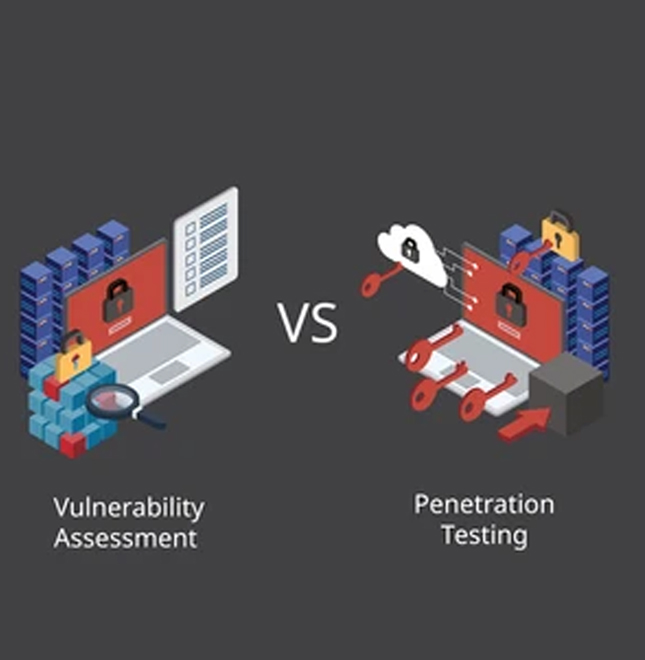
Cyber Hygiene and Its Impact on Cyber Insurance: What You Need to Know
In today's increasingly connected world, cyber hygiene plays a pivotal role in safeguarding businesses from cyberattacks. As organizations strive to protect sensitive data, maintain operations, and comply with regulations, effective cyber hygiene practices have emerged as a foundational element in cybersecurity. However, its significance goes beyond just preventing breaches—it directly influences an organization's ability to secure cyber insurance and the premiums they pay for it.
In this blog, we will explore what cyber hygiene entails, its impact on cyber insurance, and why organizations should prioritize it.
What Is Cyber Hygiene?
Cyber hygiene refers to a set of best practices and habits that individuals and organizations follow to ensure the safety and security of their systems, networks, and data. Just like personal hygiene is essential for health, cyber hygiene is crucial for the digital health of a company. Key components of good cyber hygiene include:
- Regular software updates and patching: Ensuring that all software and systems are up-to-date to eliminate vulnerabilities.
- Strong access controls: Using strong passwords, multi-factor authentication (MFA), and role-based access control to restrict unauthorized access.
- Data backups: Regularly backing up critical data to mitigate the impact of ransomware or data loss.
- Employee training and awareness: Educating employees about phishing, social engineering, and other common cyber threats.
- Vulnerability assessments: Regularly scanning systems and networks for weaknesses and remediating them before attackers exploit them.
By following these practices, organizations can significantly reduce the risk of cyber incidents and minimize the potential damage when breaches do occur.
The Growing Importance of Cyber Insurance
With cyber threats on the rise, many businesses are turning to cyber insurance to mitigate the financial risks associated with data breaches, ransomware attacks, and other cybersecurity incidents. Cyber insurance policies can help cover the costs of legal fees, data recovery, reputational damage, and regulatory penalties in the aftermath of a cyberattack.
However, as the frequency and severity of cyberattacks increase, insurers are becoming more stringent in their requirements for offering coverage. This is where cyber hygiene comes into play.
How Cyber Hygiene Affects Cyber Insurance
Cyber hygiene has a direct impact on both the availability and the cost of cyber insurance. Insurers evaluate an organization's cyber hygiene practices to assess its overall security posture and determine the likelihood of a claim. Here’s how it affects key aspects of cyber insurance:
- Eligibility for Coverage Before issuing a cyber insurance policy, insurers conduct a thorough risk assessment of the organization’s cybersecurity measures. Businesses with poor cyber hygiene practices—such as outdated software, weak passwords, or a lack of employee training—may struggle to qualify for coverage. On the other hand, companies that demonstrate strong cyber hygiene practices are more likely to be approved for coverage. Insurers are keen to work with businesses that proactively manage their cybersecurity risks, as they are considered lower-risk clients.
- Premium Costs: Even if an organization qualifies for cyber insurance, its cyber hygiene practices will heavily influence the premium it pays. Companies with poor security hygiene are more likely to experience breaches, leading to higher insurance premiums. Conversely, businesses with robust security practices can often negotiate lower premiums, as their risk of making a claim is reduced. For example, organizations that regularly perform penetration testing and vulnerability assessments, implement multi-factor authentication (MFA), and have incident response plans in place can benefit from lower insurance costs. Insurers may offer discounts or incentives for companies that invest in strong cybersecurity measures.
- Policy Limits and Exclusions: The quality of an organization’s cyber hygiene can also impact the scope of coverage provided by the cyber insurance policy. Businesses with poor security practices may face higher policy limits or exclusions. For instance, if a breach occurs due to a vulnerability that was easily preventable—such as failing to apply a critical software patch—the insurance policy may not cover the full cost of the breach. Insurers are becoming increasingly specific in their policy terms, requiring organizations to meet certain cybersecurity standards. Businesses that can prove they adhere to best practices in cyber hygiene are more likely to receive comprehensive coverage without excessive exclusions or limitations.
Cyber Hygiene Practices That Can Improve Your Insurance Profile
To enhance your organization’s cyber hygiene and improve your chances of securing favorable cyber insurance terms, consider the following practices:
- Implement Regular Vulnerability Scanning and Patching
- Adopt Multi-Factor Authentication (MFA)
- Train Employees on Cybersecurity Awareness
- Create and Test an Incident Response Plan
- Monitor Third-Party Risk
Vulnerabilities in software and systems are often the root cause of cyberattacks. By implementing regular vulnerability scans and ensuring timely patch management, organizations can close security gaps before they are exploited. This not only reduces the risk of an attack but also shows insurers that the organization is committed to proactive risk management.
Weak or stolen passwords are a leading cause of data breaches. Multi-factor authentication (MFA) adds an additional layer of security by requiring users to verify their identity with something they know (a password) and something they have (such as a smartphone app or hardware token). Implementing MFA across your organization will reduce the risk of unauthorized access and improve your insurance profile.
Human error is a common factor in many cyber incidents. Organizations can mitigate this risk by providing regular cybersecurity training for employees, ensuring they are aware of phishing attacks, social engineering, and other common cyber threats. Insurers view ongoing employee training as a critical component of strong cyber hygiene.
Having a comprehensive incident response plan in place is essential for minimizing the damage of a cyberattack. Organizations should not only create an incident response plan but also regularly test it to ensure its effectiveness. Demonstrating to insurers that your organization is prepared to respond to cyber incidents can lead to better coverage and lower premiums.
Many breaches occur through third-party vendors or service providers. As part of good cyber hygiene, organizations should assess the security practices of their third-party partners and implement contracts that require them to meet specific cybersecurity standards. Managing third-party risk demonstrates a comprehensive approach to cybersecurity, which can positively impact insurance assessments.
The Future of Cyber Hygiene and Insurance
As the threat landscape evolves, cyber insurers are likely to place even greater emphasis on cyber hygiene in the future. With AI-driven attacks, ransomware-as-a-service, and increasingly sophisticated threats on the rise, businesses will need to strengthen their cybersecurity measures to not only prevent breaches but also qualify for insurance.
Organizations that prioritize cyber hygiene will be in a better position to negotiate favorable insurance terms, avoid costly exclusions, and reduce the likelihood of significant financial losses from cyber incidents.
Conclusion
Good cyber hygiene is more than just a best practice—it is a critical factor in securing cyber insurance and managing overall cybersecurity risks. Organizations that invest in regular patch management, employee training, and incident response plans will not only strengthen their security posture but also reduce insurance premiums and ensure more comprehensive coverage.
At Risknox, we specialize in helping businesses assess and improve their cyber hygiene practices. Our Cyber Hygiene Score and other security solutions can help your organization qualify for the best possible cyber insurance policies and enhance overall resilience against cyber threats. Contact us today to learn more about our services and how we can support your cybersecurity journey.
Lets Get Stared with Us.
Call Us Now!







